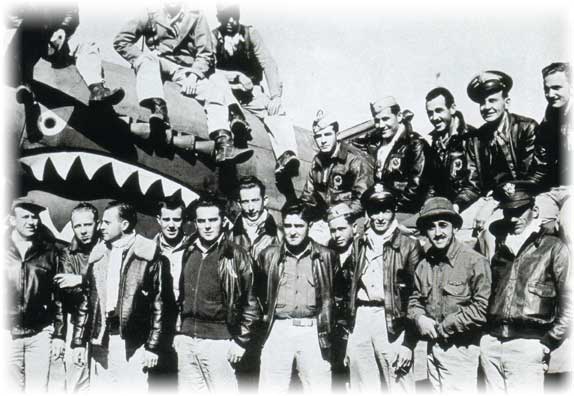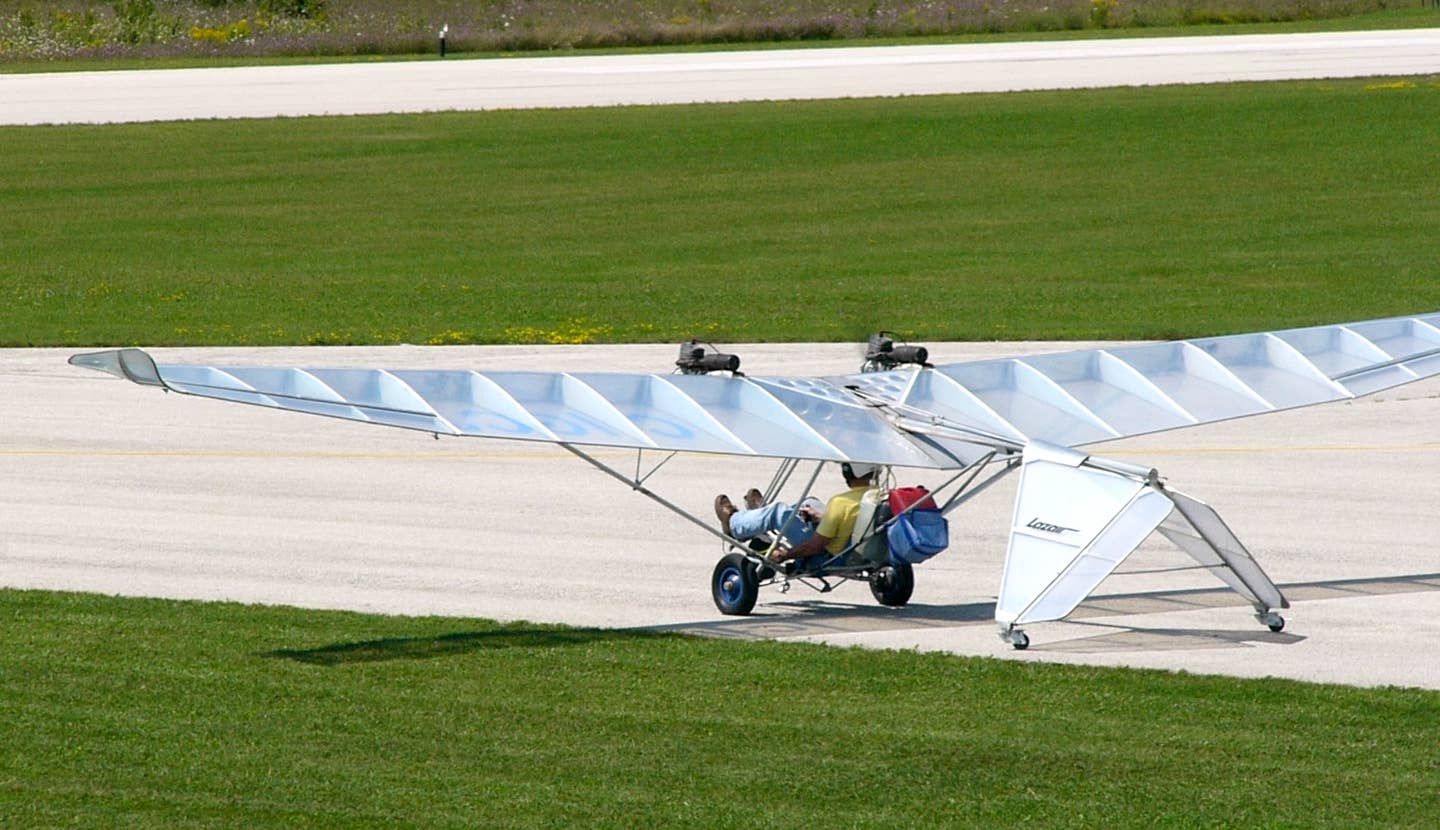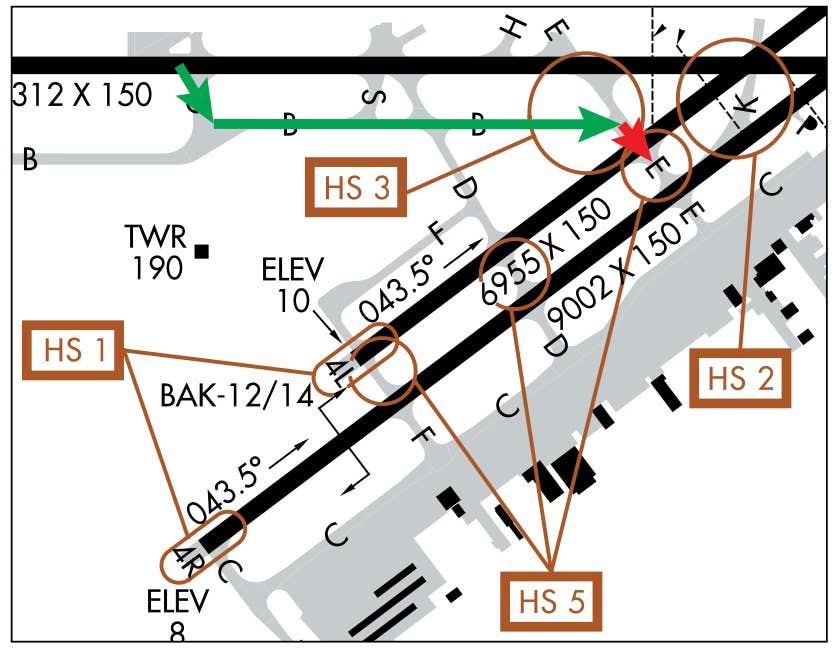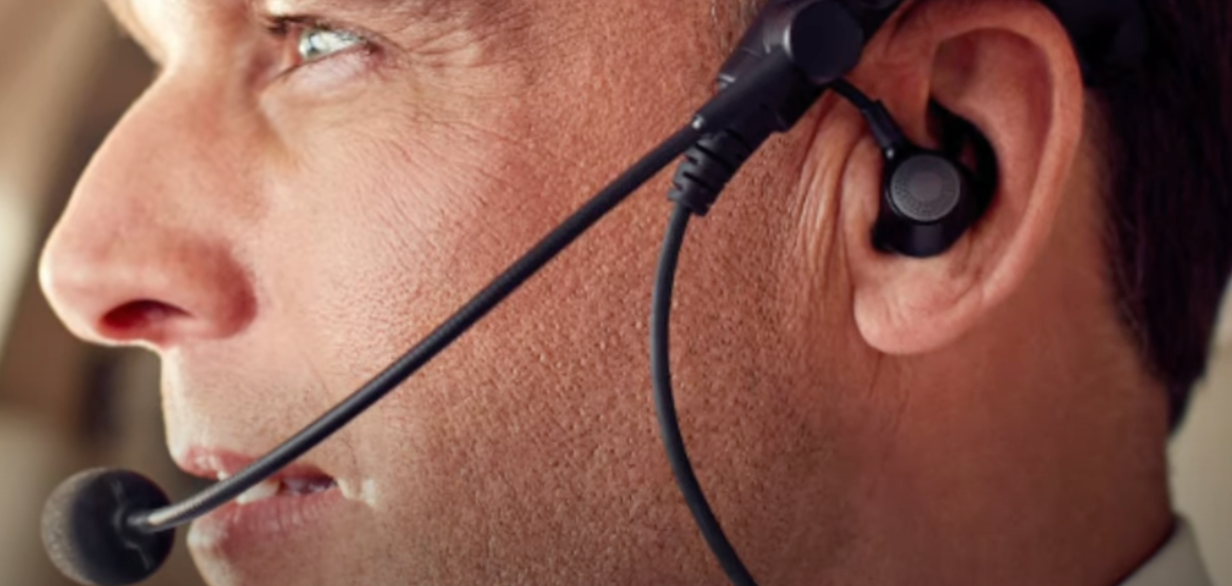Eye of Experience #53:Checkrides
Checkrides – Once the busiest DPE in the Great Lakes Region, AVweb’s Howard Fried has taken many and given many. He reflects on the experience in the latest “Eye of Experience.”
 When I first started writing the Eye of Experience, fresh after seven years of writing the Eye of the Examiner for FLYING magazine, I indicated that many of the Eye of Experience columns would deal with the subject of flight testing. With 17 years' experience as a Designated Pilot Examiner, and having administered over 4,000 certification flight tests, one would think I had seen it all. Far from that, each applicant taught me something by showing me something I hadn't seen before. I enjoy teaching, and although the evaluation process is far different from teaching, it is a part of the education process. For three years I taught sociology in a large university, and in a class of 30-odd, there would be one or two with a spark that made it worthwhile. In flying, on the other hand, almost all the students are well-motivated. I get my kicks out of seeing a student develop and grow as an aviator, particularly a primary student.
When I first started writing the Eye of Experience, fresh after seven years of writing the Eye of the Examiner for FLYING magazine, I indicated that many of the Eye of Experience columns would deal with the subject of flight testing. With 17 years' experience as a Designated Pilot Examiner, and having administered over 4,000 certification flight tests, one would think I had seen it all. Far from that, each applicant taught me something by showing me something I hadn't seen before. I enjoy teaching, and although the evaluation process is far different from teaching, it is a part of the education process. For three years I taught sociology in a large university, and in a class of 30-odd, there would be one or two with a spark that made it worthwhile. In flying, on the other hand, almost all the students are well-motivated. I get my kicks out of seeing a student develop and grow as an aviator, particularly a primary student.
Everybody takes checkrides. Personally, it seems like I've been taking checkrides all my life, for over ten years at the rate of four a year, and I have adopted a philosophical attitude toward the experience. I simply convince myself before I go for the checkride that I'm going to show the Inspector or Examiner how I fly, and what I know, and if it isn't good enough I don't deserve to pass. Going in with this attitude I invariably pass the test, although I did fail one once. I'll tell you about that one later. From my viewpoint as a DPE (Designated Pilot Examiner) there is no greater joy than issuing a pilot certificate to a well-prepared applicant who has given me a letter-perfect practical test.
The FAA assumes the posture that the applicant can do no wrong. That whatever the applicant does on a checkride is the result of the instruction he or she has had. If an applicant is well prepared, there is no excuse for busting a checkride. And it is up to the instructor to get 'em well-prepared! However, in spite of the best effort of the best instructor, some applicants will go ahead and bust anyway. Remember, the applicant makes the instructor look good or bad. Of course, the world's greatest instructor can pour his/her heart and soul into training a hopeless applicant, and finally, in desperation throw up his hands and say to himself, "I'll go ahead and send him/her in and if he has a good day he just might pass." Then the examiner, after seeing a marginal ride, whether the applicant passes or fails, thinks to himself, "Boy! That one must have had lousy instruction."
On the other hand, the world's worst instructor could have a natural, a well-motivated student who taught himself how to fly while the instructor just sat there and prevented him from committing suicide while he taught himself how to fly. Then the applicant gives the examine a letter-perfect ride, and the examiner thinks, "Boy! This one had superb instruction!"
Responsibility
Being a flight instructor carries a heavy responsibility, but it doesn't compare with that of the examiner. When I was first designated I felt the heavy weight of the frightening responsibility on my puny little shoulders. Suppose I mad a mistake and certified an individual that should go right out and kill him/herself? I discussed this with an FAA inspector friend and he told me that all you can do is make sure they meet the standard of the Flight Test Guide, later the PTS (Practical Test Standards). He told me that, as a DPE (Designated Pilot Examiner) prior to joining the FAA, he had issued a Private Pilot Certificate to an individual who had flown in for his checkride from an airport several miles away. On the way home he flew into a thunderstorm, crashed and died. He said that he had consoled himself with the fact that the applicant had met the standards, and that's all he could assure as a DPE.
I lived in terror, thinking that it might happen to me. Sure enough, several years later, a man to whom I had issued a private certificate and an instrument rating foolishly flew an airplane with known deficiencies and went down over the middle of Lake Michigan, the bottom of which is virtually paved with dead airplanes. I don't feel the least bit guilty over this one. The guy just showed poor judgment, but on those occasions when I tested him, he did, indeed, meet the standard.
Liability
 Today, when nobody seems to be willing to assume responsibility for his/her actions and anybody seems ready to file a lawsuit for any imagined slight, concerns about potential liability have become a real factor of life. With juries awarding judgments so large that it is impossible to buy enough insurance to cover the potential loss, more than one flight instructor of my acquaintance has given up teaching for fear of losing everything they own. And more than one of my friends who would be an excellent instructor refuses to become one for the same reason. In my own case, I decided many years ago that I would simply assume the risk. I would do whatever I could to cover myself by carefully documenting everything I cover with my students, and hope for the best. So far, knock on wood, it has worked out. In many thousands of hours of giving instruction I've never been sued, but if I should be, I am prepared to defend myself. (Besides, I'm not exactly wealthy; what could a plaintiff take from me?)
Today, when nobody seems to be willing to assume responsibility for his/her actions and anybody seems ready to file a lawsuit for any imagined slight, concerns about potential liability have become a real factor of life. With juries awarding judgments so large that it is impossible to buy enough insurance to cover the potential loss, more than one flight instructor of my acquaintance has given up teaching for fear of losing everything they own. And more than one of my friends who would be an excellent instructor refuses to become one for the same reason. In my own case, I decided many years ago that I would simply assume the risk. I would do whatever I could to cover myself by carefully documenting everything I cover with my students, and hope for the best. So far, knock on wood, it has worked out. In many thousands of hours of giving instruction I've never been sued, but if I should be, I am prepared to defend myself. (Besides, I'm not exactly wealthy; what could a plaintiff take from me?)
Even so, I know of a case in which a pilot examiner was involved in a frivolous lawsuit that cost him a bunch. He had given a private checkride to an applicant who had flown in from an airport some 30-odd miles away. A year later the pilot to whom he had issued the certificate rented a PA28-140 (Cherokee 140) from the FBO where he regularly rented. The FBO looked out the window and saw the pilot loading four heavyweights and a bunch of baggage (hunting equipment, including a tent, stove, etc.) into the airplane. The FBO rushed out shouting, "Stop! Do a weight and balance." The pilot did, and off-loaded the heaviest passenger and all the equipment, saying, "You drive with the stuff, and we'll meet you there."
The other three got in the airplane and flew to a nearby airport where they met the fourth guy and reloaded everything back into the airplane. You guessed it. On the takeoff attempt they crashed, killing all four. The pilot's estate then sued the examiner, who hadn't seen him for about a year, for issuing the certificate! Although the examiner worked for an FBO that had insurance covering him, it cost him personally some $80,000 to back up the insurance company's lawyer. It took some 80 depositions and affidavits from former applicants, all testifying that weight and balance was thoroughly covered on their flight tests, to get the examiner dismissed from the lawsuit. Although there is a principle in the law called "malicious prosecution" designed to penalize those who bring unjustified actions against innocent defendants, the courts are very reluctant to apply it. I guess they think that there may be some merit to the case and are willing to let a jury decide. Wouldn't it be nice, though, if the folks who bring these baseless lawsuits had to pay the defendants for doing so?
Training for Evaluation
 When I was first designated as a pilot examiner, back in 1972, I was called in to the GADO (General Aviation District Office), later a FSDO (Flight Standards District Office), a combined GADO and ACDO (Air Carrier District Office), handed a copy of the Examiner's Manual ("This describes your authority."), a set of the old Flight Test Guides for Private, Commercial, and Instrument, ("These are the standards you must apply."), several pads of Temporary Pilot Certificates, ("Give these to successful applicants."), and a few pads of Disapproval Notices, a.k.a. "pink slips," ("Give these to unsuccessful applicants."). And then I was told, in effect, "Bless you my son; now go out and give checkrides."
When I was first designated as a pilot examiner, back in 1972, I was called in to the GADO (General Aviation District Office), later a FSDO (Flight Standards District Office), a combined GADO and ACDO (Air Carrier District Office), handed a copy of the Examiner's Manual ("This describes your authority."), a set of the old Flight Test Guides for Private, Commercial, and Instrument, ("These are the standards you must apply."), several pads of Temporary Pilot Certificates, ("Give these to successful applicants."), and a few pads of Disapproval Notices, a.k.a. "pink slips," ("Give these to unsuccessful applicants."). And then I was told, in effect, "Bless you my son; now go out and give checkrides."
Having been taking checkrides for all my certificates and ratings, I sort of knew the procedure - what to do and how to do it.
A few years later (I believe it was in '75 or '76) the PEST (Pilot Examiner Standardization Team) was established. A small group of eight people, headed by Chuck Steuben and including Ron Bragg, was charged with seeing that flight testing whould be the same in New York and in California and all points between. Teams of three were sent to every FAA District Office in the world and they conducted a five-day clinic on the administration of flight tests. Attendance was mandatory for all pilot examiners.
This was a terrific educational experience for me. They used what for that time was very advanced teaching techniques. They made excellent use of video as a training tool, and if you've ever had the pleasure of hearing Ron Bragg speak, you know how well he blends humor into his presentation. They used the psychodram technique very effectively. The examiners were broken up into groups of five. One would play applicant, one would play examiner giving an oral portion of the test, and the other three would serve as a panel of judges, evaluating the evaluator. The entire thing was videotaped, and if you ever want to see just how bad you sound, watch yourself on videotape interviewing somebody.
After that first go-around with the five-day program, the teams would come to each District Office every two years with a three-day updated program. I visited the office of the PEST at the FAA Aeronautical Center in Oklahoma City several years ago and watched them work on updating their program. On alternate years when the PEST isn't visiting a District Office there is a mandatory examiner meeting in each District Office. All new examiners are also required to attend an initial program in Oklahoma City prior to starting as an examiner. This is a far cry from the way I was thrust into the evaluation process!
Trouble
There are a few things an examiner can do to get in serious trouble. If an examiner attempts to substitute his own standards for those of the PTS, he or she is practically asking the FAA to take away his/her designation. I've seen this happen to two examiners. If an examiner repeatedly stands up applicants or is repeatedly late for appointments with applicants he or she is asking for trouble - at first a counseling session at the District Office. Then, if the problem persists, the loss of his or her designation. I've seen that happen, too.
Availability
I was told to try to be available when an applicant is ready for his/her checkride. Nobody had to tell me this. I believe the time to give the test is when the applicant has his graduation certificate or recommendation in his/her hot little hand before he or she has a chance to either go stale or work up a set of nerves worse than he/she already has. Therefore, I adopted a policy of canceling anything else I might have on my schedule to accommodate an applicant. I always managed to accommodate an applicant within two days (three at the most). Beside the fact that I had a reputation for being strictly impartial, I believe the factor of availability is what made me the busiest examiner in the Great Lakes Region, administering well over 300 certification flight tests per year for all certificates and ratings.
A Second Chance?
 The FAA emphatically states, "No second chance!" However, I don't believe there is a single examiner anywhere who, on occasion, when an applicant has blown a maneuver, hasn't given him or her another shot at it. Personally, I would grade an applicant up who, after making a mistake, would catch it and make a self-correction. I didn't consider this giving the applicant a second chance. I believe exery examiner wants to pass the applicant, I know I did. (It is a lot easier to pass an applicant than to bust him or her - there's less paperwork involved and you don't have to fly with 'em again on a recheck.) So what happens is, after you get a really good oral, you've already decided that this one is pretty good, and you find yourself making excuses for him or her if the ride itself is less than perfect. (It was too gusty, or whatever.)
The FAA emphatically states, "No second chance!" However, I don't believe there is a single examiner anywhere who, on occasion, when an applicant has blown a maneuver, hasn't given him or her another shot at it. Personally, I would grade an applicant up who, after making a mistake, would catch it and make a self-correction. I didn't consider this giving the applicant a second chance. I believe exery examiner wants to pass the applicant, I know I did. (It is a lot easier to pass an applicant than to bust him or her - there's less paperwork involved and you don't have to fly with 'em again on a recheck.) So what happens is, after you get a really good oral, you've already decided that this one is pretty good, and you find yourself making excuses for him or her if the ride itself is less than perfect. (It was too gusty, or whatever.)
At the annual examiner meetings the local FAA District Office Manager kept telling us that the FAA is looking for a 15% bust rate. After one such meeting, as we were filing out, the inspector running the meeting stood at the door handing out pads of temporary certificates and pads of pink slips (Disapproval Notices). When it came to the examiner in front of me in the line, the inspector asked if he needed any temporaries. And the answer was, "Yes, about a half dozen." The inspector then asked how many pinkies he required. Unhesitatingly he answered, "Oh, about 15%!"
I never kept track of my pass-fail rate throughout the year, but every year at renewal time I would run the stats, and it always came out the same - between 12-14%, so I guess it worked out OK. I did know, however, at least one examiner who deliberately looked for an excuse to bust an applicant because he felt that he had been passing too many.
And on the subject of pass-fail rates, at an examiner meeting one time I was sitting next to an examiner who was the Chief Flight Instructor at his flight school. I turned and asked him what his bust rate was. "He said, "About 15%." I then asked how many busted from his own school. He looked startled and said, "None, of course!"
Even so, like our government, with all its flaws, the pilot examiner program is the best we've got, and overall it is pretty damn good.
Usual Boilerplate: If you have a comment regarding this column, please post it here rather than sending it to me by direct email. That way others may benefit from your input.






